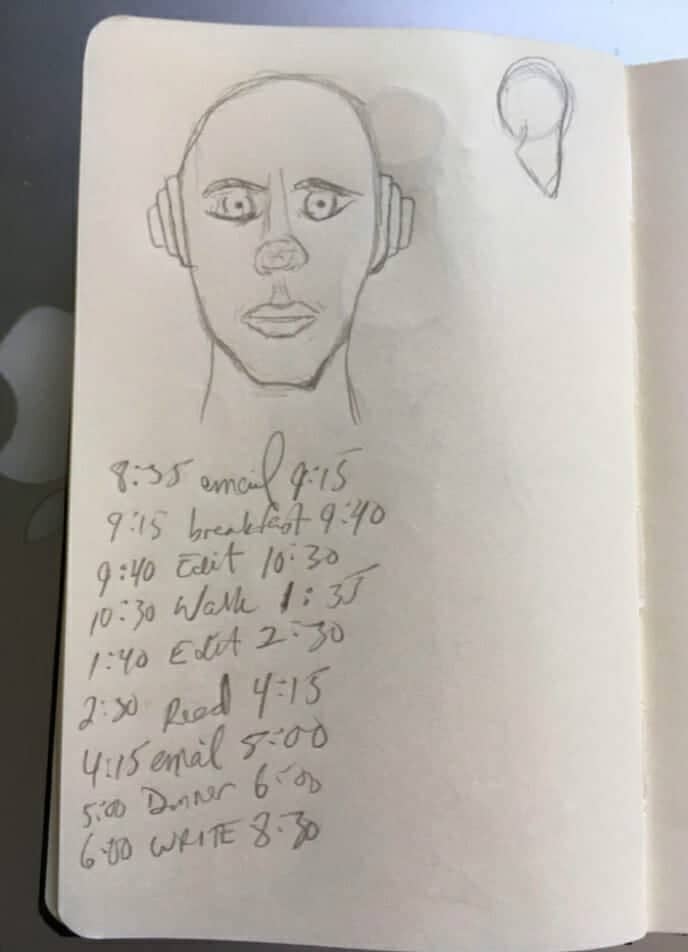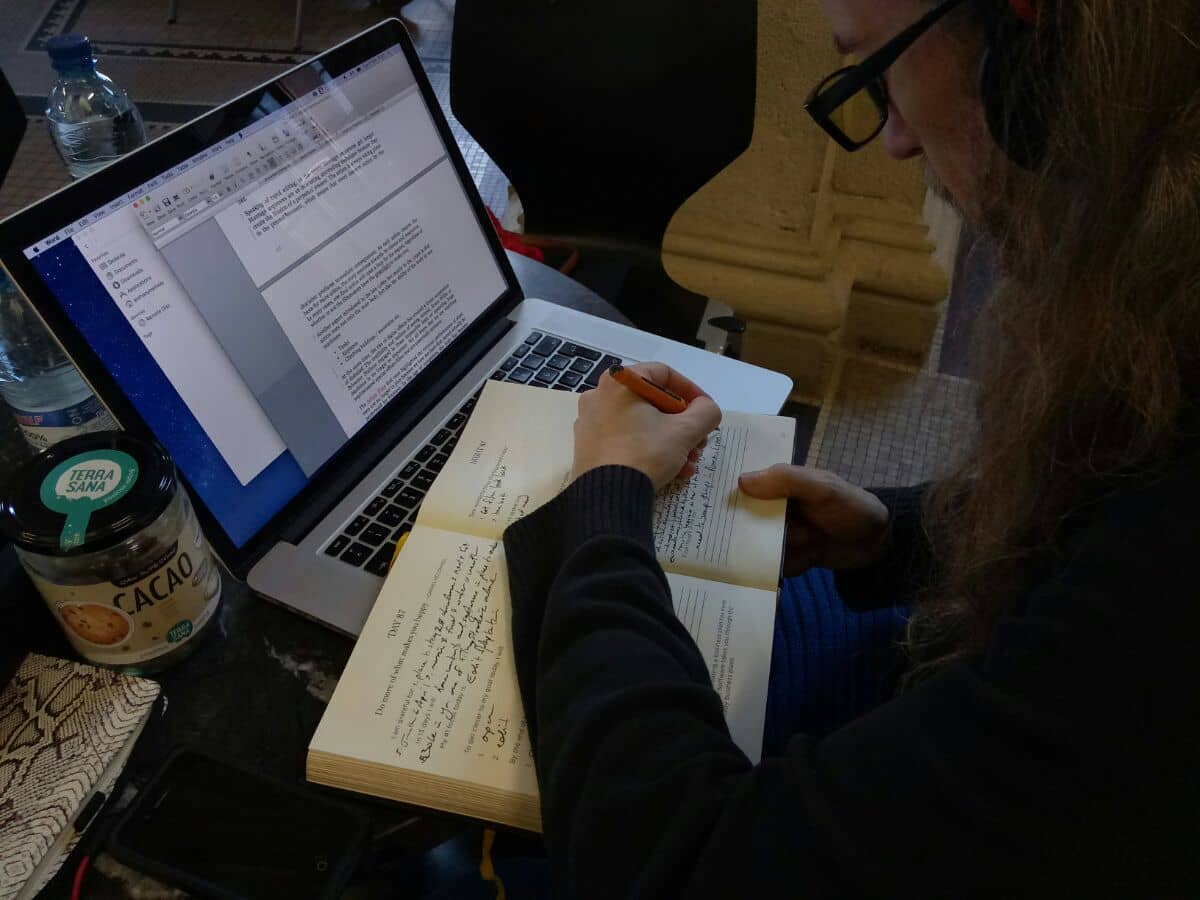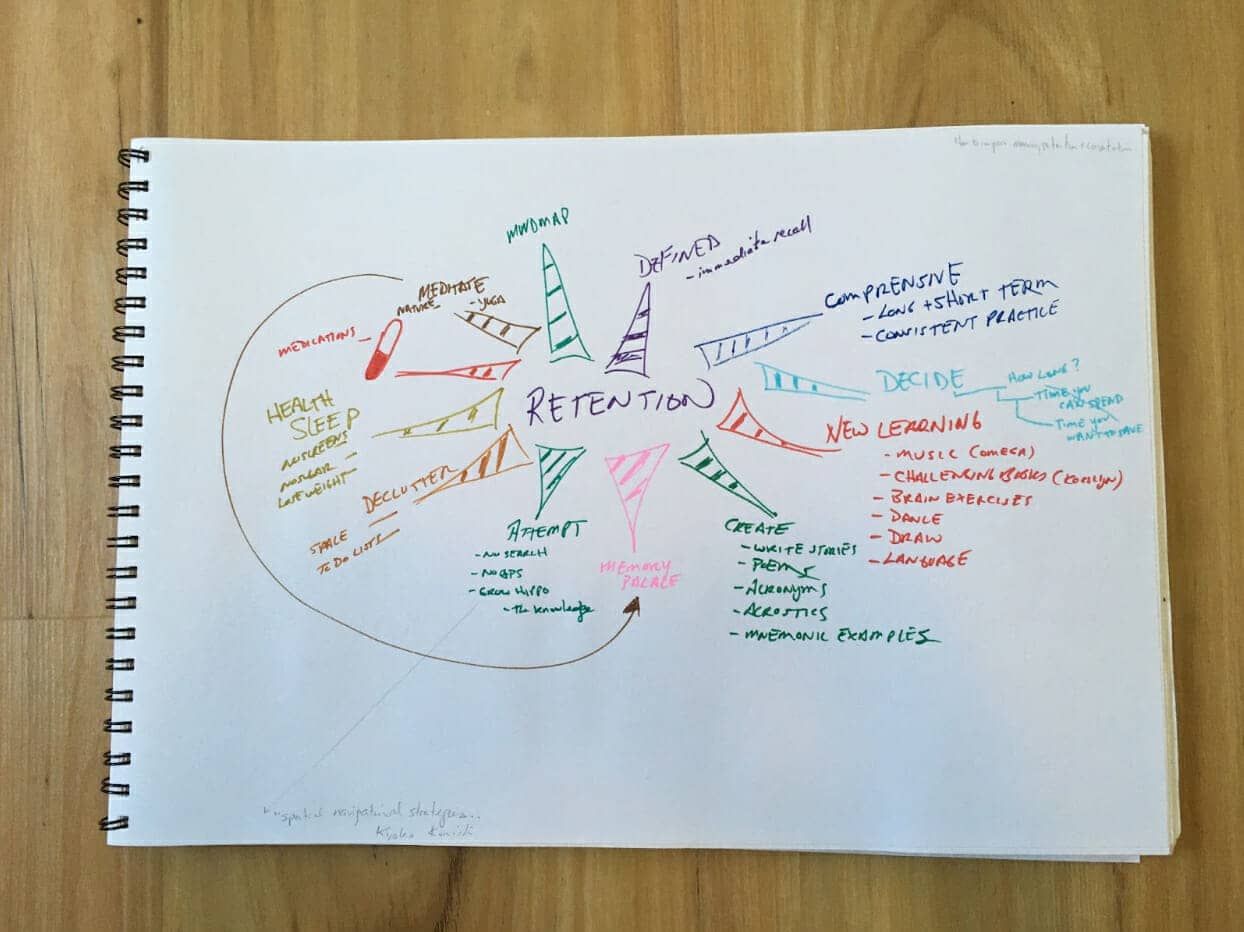 As a memory expert, I often receive emails from people worried about losing their jobs because they keep forgetting mission critical information. That’s sad, because learning how to remember things at work is quite simple.
As a memory expert, I often receive emails from people worried about losing their jobs because they keep forgetting mission critical information. That’s sad, because learning how to remember things at work is quite simple.
It’s easy too, if you’re willing to approach your memory with the same professionalism that got you your job in the first place.
Same thing goes for self-employed people and entrepreneurs like myself.
It’s easy to keep your mind sharp when you take the holistic approach to memory preservation and training I’m about to share with you.
Ready for some of the best work-related memory tips I’ve learned from years as an employee and over a decade as a successful business-owner?
Let’s dive in!
How to Remember Things at Work: 7 Easy Tips
As we go through these tips, please understand that there’s no special order to my recommendations. But I’ve included them all because they work together holistically.
Plus, it’s incredibly important that you do work on them. According to research in Neurology, one of the most important scientific journals, the demands we place on the mind in the workplace can cause serious damage.
In other words, the more you can attend to each tip I share below, the more you’ll see your mental clarity increase across the board in a healthy way. The holistic approach I’m offering as a memory expert with ample work experience at three universities around the world is important to understand because the exact nature of memory is itself just one part of what it takes to stop forgetting things.
One: Use Checklists Like a Pilot
Many people have emailed me over the years that they would like to be able to remember things without taking notes or referring to check lists.
Although it is possible to use memory techniques to commit long lists to memory, I don’t recommend it. I personally spare such memory hacks for other goals. As a result, I save myself a lot of time and mental processing-power.
So I suggest you regularly jot out what needs to be done. Then follow the list. With some repetitive tasks, you’ll develop long-term memory and procedural memory that will render the lists unnecessary.
But even then, for mission critical tasks, I still recommend keeping lists and referring to them. Care about your work like pilots care about taking off and landing safely. It will reduce your stress, which is important because too much stress can negatively impact your memory.
Two: Track Your Time
One of the ways I developed more automatic recall of the things I need to do regularly in my business was to track the exact amount of time I was spending on different tasks.
As scientists have found, time-management impacts your well-being much more than performance. That’s why I got into what is sometimes call “descriptive time-tracking.” It looks like this:

On top of keeping a checklist or to-do list, I’m literally keeping a record of how long things take.
In this case, developing memory around how long it takes to complete tasks increases decision making skills at an intuitive, subconscious level.
That way, when someone asks you how long a task at work will take, you’ll remember the answer clearly. Being able to accurately assess and answer such questions leads to much greater effectiveness and efficiency.
Three: Journal for Clarity and Insight
A lot of people who want to be more professional at work starve themselves of what employers are really looking for: better ideas and processes that improve the bottom line.
Being able to bring fresh insights and workable innovations puts you on the path to a raise or promotion – just like my student Jesse Villalobos, who detailed his upward trajectory on the Magnetic Memory Method Podcast.
There are specific ways to keep a journal that will help create these flashes of insight. But you will also be strengthening your memory of critical details to your work at the same time.
Journaling regularly is a win-win and has been shown to promote overall well-being on top of memory improvement. As one study found, journaling substantially improved working memory specifically.
And here’s another tip from my personal journey. In the photo above, you see me using The Freedom Journal. Lugging it around and keeping it visible in my environment has helped make sure I don’t forget or brush aside my long term projects. I always have some kind of physical journal on my desk because the environmental cue itself serves as a memory aid.
For more information on this important tip, here’s how to journal for better memory with additional ideas on how to incorporate regular writing into your day.
Four: Use the Right Memory Exercise and Brain Fitness Training
People often go to crossword puzzles and brain games to help improve their memory. Their intuition isn’t wrong, but some scientists are having a hard time finding any kind of transfer of skill from games to real life.
That’s because of something called context dependent memory or state dependent memory. In other words, playing games can make your memory stronger in the context of the game, but still not transfer to better working memory in real life situations at work.
Although there are a variety of working memory exercises that can work at a general level, you will need to think about exactly what kind of memory boost you need in your specific profession.
For example, writing could provide the memory exercise you need, or more reading. It really depends on the specific scenario, so feel free to contact me if you’d like to explore tailored brain exercises that will address your needs.
Five: Use Chunking with Mind Maps
We often make the mistake of trying to take on large units of information. Usually, however, you’ll remember a lot more if you break things down into smaller parts.
Scientists call the specific tactic of dividing information into more manageable parts, chunking. A simple example would be taking just one part of a complex report and using mind mapping to help you better understand a small section in isolation.
I’ve done this in my study of memory many times and it is very useful. Here’s an example mind map of how I’ve done that to help myself better understand memory retention:
The benefit of using a mind map in this way is that I’m not overwhelmed by many other issues and the chunking process lets me explore a small set of issues relevant to just one term.
Six: Set the Stage for Attention
Everybody points out that you need to pay attention. But exactly what steps do you follow in order to be able to focus on work?
It actually begins by setting the stage so that you can enjoy the benefits of focused attention. This includes making sure that you:
- Avoid foods that harm your brain and create brain fog
- Eat foods that improve memory
- Get enough memory-friendly sleep
- Include plenty of daily exercise
- Meditate specifically for concentration
Seven: Learn the Art of Memory
Our ancestors also needed to know how to remember things at work. They dealt with laws and technical details the same way we do. For example, the Renaissance memory master Robert Fludd was a doctor and taught the same techniques he used to remember medical terminology.
That’s why ancient memory techniques are still around. These include:
- Making associations by using mnemonic images
- Remembering names by placing associations in Memory Palaces
- Committing important numbers to memory using number rhymes
There are many more memory strategies to explore, but the list above provide you with the ones many of my most successful students have used to make a lasting impact.
If you’d like more help, get my free memory improvement course now:
It will show you more about how to retain information at work through four video lessons and worksheets designed for the serious professional.
I use these techniques myself every day, and in a constantly changing landscape, they remain a godsend.
But the important thing to remember about memory improvement of all kind is that it needs to be treated holistically. That’s why I shared my unconventional work tactics like time-tracking and journaling.
Remembering more at work is never about just one technique, but about a combination of tools working seamlessly together for the best possible result.
You’re now armed with this valuable knowledge. All that’s left is for you to start putting the tips into action.
I look forward to hearing about your next promotion soon!
Related Posts
- Brain Athlete: Does This Free Memory App Work?
The Brain Athlete App is perfect for training as you work on using Memory Palaces…
- Nelson Dellis On Remember It! And Visual Memory Techniques
Looking for visual memory techniques? And I mean truly visual. In this episode of the…
- The Memory Code: Prehistoric Memory Techniques You Can Use Now
Lynne Kelly, author of The Memory Code, shares her personal experiences learning ancient memory techniques…






